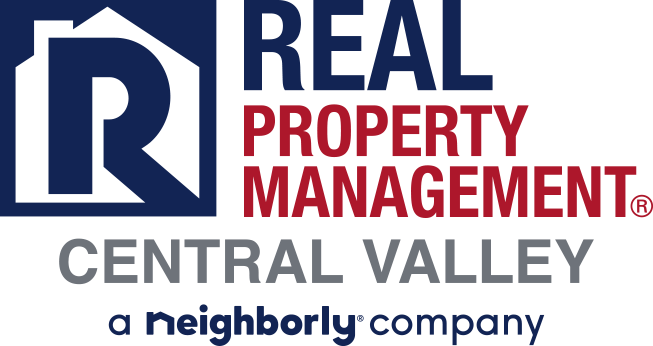Top 5 Rental Property Investment Killers
Are you planning on investing in a rental property? If so, you’ve come to the right place!
In this article we will break down the top rental property investment killers:
1. Maintenance
Understand that when you own a property, there is an obligation on your part to make sure that you are keeping a safe and habitable property for the tenant to live in. This is not something that you have an option to do. This is something that you have an obligation to do by law (and normally by your local property code).
You can’t just let the tenant live in a property that is unsafe or uninhabitable—you must fix things that are in need of attention. If you don’t, things will go wrong in a hurry.
I have learned that if you do not fix it correctly—you want to use the cheap person to save as much money as possible—what normally ends up happening is the person has to come back three more times. They’ll never fix it correctly.
Now you’ve got an upset tenant, and you’ve paid three times the amount. No one is happy. And you know what eventually happens is your tenant ends up leaving.
Guess what happens after the tenant leaves? You still have the problem that you still have to fix, but now you don’t have the rental cash flow coming in—you just made your problem worse.
Don’t do something like take a $50 water drip problem and turn it into a several thousand dollar mold issue because you don’t want to take care of a small maintenance item. Remember, these things do not go away.
This is your investment property, and you’ve got to take care of it and treat it correctly.
Maintenance is the biggest property killer that you will deal with when it comes to owning a rental property.
2. Vacancy
Vacancy is something that is a very, very stressful time. Normally, vacancy is not something that’s planned. You don’t want to have a property not producing revenue, not producing income.
So what happens when your property is vacant is you are stressed. When you’re stressed, you start thinking worst case scenario. Maybe you thought your property would be rented in two weeks, but now it’s two months later and it’s still not rented.
What happens next is you start making emotional decisions that are not in the best interest of your investment property. Maybe you accept tenants that you should not accept. Maybe you lower the rent too low, and now you have a tenant that is not someone that you want in your property. And you did it all because of emotions.
Know that when you have a property and you have a rental investment, there are going to be times when there is a vacancy.
If you know there are going to be periodic vacancies and you don’t want to experience stress over it, take some money and put it aside. That way, you are not putting yourself in a bad financial position. And more importantly, you’re not putting yourself in a bad, stressful position, because you made a bad decision and you did not pre-plan the vacancy.
3. Communication
Poor communication has got to be one of the main problems—not just in rental properties—but in any business.
And remember, you are in the customer service business. Your tenant has the ability to take their business elsewhere.
You communicating with your tenant and you letting them know what’s going on and setting proper expectations when the tenant moves in is so vital. When it comes to having a rental property, you don’t just own four walls and a roof. You have a business inside of those four walls and a roof.
And you’ve got to make sure that you are communicating with your client. That client is your tenant.

Because remember, if the tenant does not pay, guess what happens? You now have a business that is not making you any money and you have a vacancy. Go back to number two, and now you are stressed because you’ve got a vacant property.
It’s very simple: When a tenant moves in, let them know how you want to communicate. Let them know, “Hey, listen. I will get back to you within 24 hours from 9 to 5 Monday through Friday. If it’s an emergency, I will get back to you within the hour—only if it’s an emergency.”
Also communicate the definitions of things that are considered an emergency. List them out. What are the things that could go right and could go wrong and things that are considered emergencies in a property? By defining this, both you and the tenant know.
The tenant needs to know exactly how to communicate with you, and they need to know exactly what is an emergency and what is standard.
And when you do communicate with them, I will tell you this. Do not make emotional reactions when you are communicating with your tenant. I have never known anyone that says they text messaged back a tenant in the middle of eating dinner when they were upset, and they were glad that they did that. No, they were pissed off at that moment.
You always have to think who could be reading that text down the road, especially if you’re in a court situation or a legal battle. Never do something out of emotions. Sit back, think about it, and then answer the communication, and only do it in a very professional manner and the way that you outlined in the expectation conversation you had with the tenant when they moved in.
4. Expectations
This is very important, not just with your tenant but with your contractors and vendors and your real actors. Anyone that you do business with, make sure that you have proper expectations and that you’ve discussed these expectations.
So, for example, when you have a contractor, make sure you give them the expectations of when you want a job to be done. Let them know what you expect the job to look like, what the quality of work should be, what the cost should be.
Same thing with your resident. When you are renting a property to a tenant, there is nothing better than sitting down with them and setting out the proper expectations of how you want your property to be treated and when you expect your rent, what you do with late fees, all of that.
All of those expectations should be put in the lease agreement, as well. That’s how you both know what the proper expectations are.
Most of the time, whenever you hear a problem between an owner and a tenant, they normally will say, “I never knew that. I didn’t know that’s what you wanted me to do.”
If this happens, it’s because you didn’t set the proper expectations—instead you rushed in. You put someone in the property without having that frank discussion with them. You didn’t clarify what the expectations were of them and also didn’t let them know what they can expect of you. It’s just as important.
You are in an agreement with that tenant, and you want to make sure that you are both comfortable having a conversation and everyone knows the rules of the game. That is called expectations.
Contact RPM Central Valley
For more property management tips, or to speak with us about the property management services we can offer you contact us today by clicking here.
